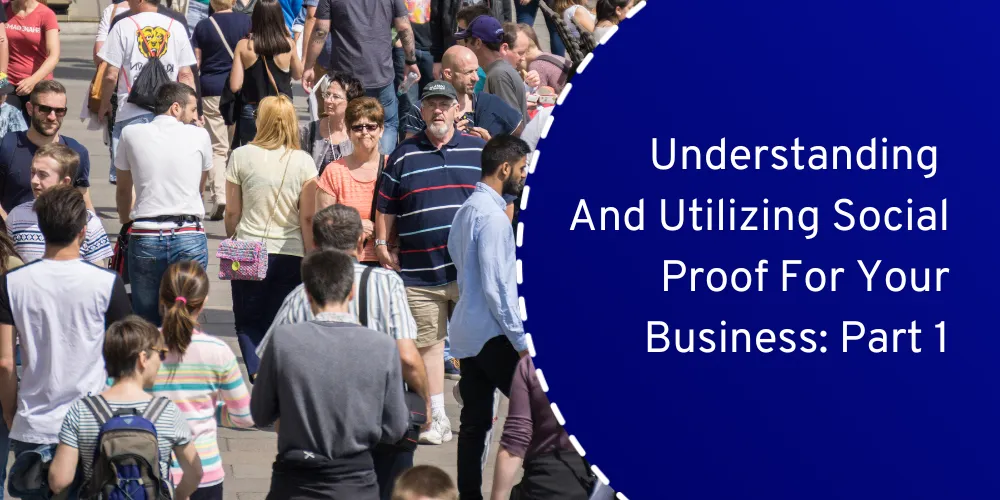Blog

Understanding And Utilizing Social Proof For Your Business
"We view a behavior as more correct in a given situation to the degree that we see others performing it."
- Robert B. Cialdini, American psychologist
Understanding And Utilizing Social Proof For Your Business
Social proof, also known as informational social influence, is a powerful psychological phenomenon that influences human behavior in a multitude of ways. It refers to the tendency of individuals to look to others, especially in uncertain or ambiguous situations, to guide their own behavior and decisions. This concept was popularized by psychologist Robert Cialdini in his book "Influence: The Psychology of Persuasion."
Understanding the concept of social proof can greatly benefit a business owner. It can be harnessed to build trust and boost sales by demonstrating the positive experiences associated with your products or services. There are applicable principles that business owners can and should use to effectively display social proof. The following concepts are a good start to understanding social proof and how it can be implemented.
Consumer Behavior
I’m almost certain that you’re aware of this - social proof plays a major role in consumer decision-making. When people see others buying and enjoying a product or service, they are more likely to follow suit. This is why customer reviews, ratings, and testimonials are so influential in online shopping. Positive reviews and high ratings serve as social proof that a product is worth purchasing. I’ll be the first to admit that checking reviews has become second nature for me.
Social Media
Social media thrives on social proof due to features such as likes, shares, comments. People tend to engage with content that has already garnered attention from others, and they are more likely to follow or like pages and profiles with a large following.
Cultural Norms
Social proof also plays a role in shaping cultural norms and values. Most people tend to conform to the behaviors and attitudes of their social group or society as a whole. For example, if a particular behavior or belief is widely accepted in a culture, individuals are more likely to adopt it to fit in and gain social acceptance.
Decision-Making in Uncertain Situations
When faced with uncertainty or ambiguity, people often rely on social proof to make decisions. For instance, in emergency situations, individuals may look to others for cues on how to respond. This can lead to either helpful collective actions or, in some cases, a diffusion of responsibility if everyone assumes someone else will take charge.
Influence of Celebrities and Influencers
Celebrities and social media influencers often use their status and popularity to endorse products and causes. Their endorsement serves as social proof and can greatly influence their followers' choices and behaviors. This phenomenon is known as the "halo effect," where people assume that if someone they admire endorses something, it must be good.
Political and Social Movements
Social proof also plays a role in political and social movements. When people see others participating in protests or supporting a particular cause, they are more likely to join in. Movements gain momentum through the visible participation and support of others, creating a sense of legitimacy and importance.
Online Behavior and FOMO
The fear of missing out (FOMO) is a psychological phenomenon driven by social proof. People are afraid of missing out on experiences or opportunities that others are enjoying. This fear can lead to compulsive online behavior, such as constantly checking social media feeds to stay in the loop.
In Conclusion
Social proof is a pervasive and influential force in everyday life. It shapes our decisions, behaviors, and perceptions by tapping into our innate need to conform and seek validation from others. Understanding how social proof operates can be valuable for business owners seeking to navigate the complexities of growing business in the digital space.
Copyright © 2017-2025 Raise Your Media I Privacy Policy
We believe that every small business deserves simple and effective sales and marketing tools.


